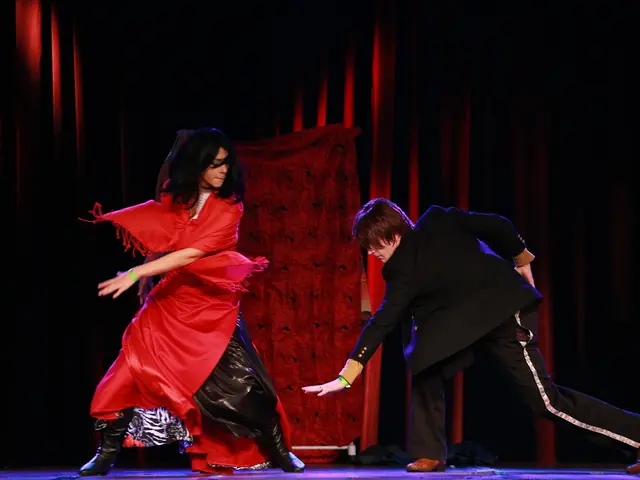Joke about Putin's alleged second wife and Malaysia's Anwar sparks laughter and controversy amid MH17 verdict decision
During a casual gathering in Moscow, it was Putin's humorous remark that took center stage. The Russian leader, in his characteristic style, shared an anecdote from a tour he gave to Anwar Ibrahim, the Malaysian Prime Minister, around the grand St. Andrew's Hall within the Kremlin.
The hall is renowned for its three historical thrones used by Russia's imperial family. Putin pointed out the two thrones allocated for the Tsar and his wife, questioning Anwar about the purpose of the third one.
In a genuine, light-hearted response, Anwar quipped, "For the second wife," eliciting laughter from the audience. Putin found the jest to be a true reflection of Islamic culture, appreciating the comment as it came from a man of faith.
Later, Anwar clarified that he was a one-woman man, admitting that he only realized upon reflection that the third throne was intended for the Tsar's mother.
The comment, while humorous, sparked some criticism. Wan Saiful Wan Jan, a leading figure from the Malaysian party Bersatu, pointed out that Russia is an Orthodox Christian nation where polygamy is illegal[1].
[1] Source: The Source 🔗
However, it's important to note that this encounter did not involve any discussions about polygamy in a serious or controversial context. Instead, it was a light-hearted exchange between two world leaders that added a charming moment to an otherwise official event.
- Despite the humor surrounding the third throne, Wan Saiful Wan Jan, a figure from the Malaysian party Bersatu, raised concerns, pointing out that Russia is an Orthodox Christian nation where polygamy is illegal.
- The light-hearted exchange between Putin and Ibrahim, though touching upon the third throne's purpose, did not delve into any serious or controversial discussions about polygamy.
- Amidst the talk of the third throne, the attention shifted towards facets of Islamic culture when Putin expressed his appreciation of Anwar's jest, acknowledging it as a reflection of his faith.







